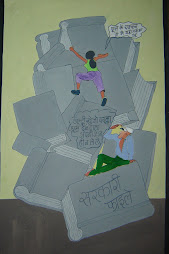RTI helps in including name in BPL (Below Poverty Line) list[1]
Even after 60 years of independence
Shankar Satnami is an unlettered, landless agricultural labourer who lives in Rajpur Kesri village in Bilaspur district of Chhattisgarh. Shankar’s name was included in the BPL list prepared during the 1990s. However, in 2002 when the new BPL list was drawn up, Shankar was shocked to see that his name was missing from the list. He was even more surprised to find that a relative of the local Patwari had made it to the new list even though he was financially well off. Shankar rushed to the village Sarpanch and the Panchayat Secretary to find out why his name had been left out. They advised him to use the Right to
Shankar filed an information request with the Takhatpur Janpad Panchayat seeking the following information:
“1. What are the criteria fo
- What was the basis for the points awarded to me during the survey?”
After Shankar received the information from the Janpad Panchayat, he learnt that he had been given 12 points based on the BPL survey that had been conducted in his block. This indicated that he fulfilled almost all criteria for being included in the list. Nevertheless his name had been left out. Armed with this information Shankar then approached the office of the Janpad Panchayat demanding to know why his name did not figure on the BPL list even though he fulfilled the criteria. The officers responsible for drawing up the BPL list in the Janpad Panchayat office had no answers. It was clear that his name had been deliberately omitted to include the names of other more influential people. The Janpad Panchayat finally agreed to include Shankar’s name in the list as they had no legitimate reason for denying him his entitlement.
With the inclusion of his name on the BPL list Shankar has once again become eligible for receiving assistance under various welfare schemes meant for the poor.
[1] Courtesy: Shri
[2] Reply of the Government of India to a question raised in the Lok Sabha ib 2005: http://164.100.24.208/lsq14/quest.asp?qref=10770 as on

